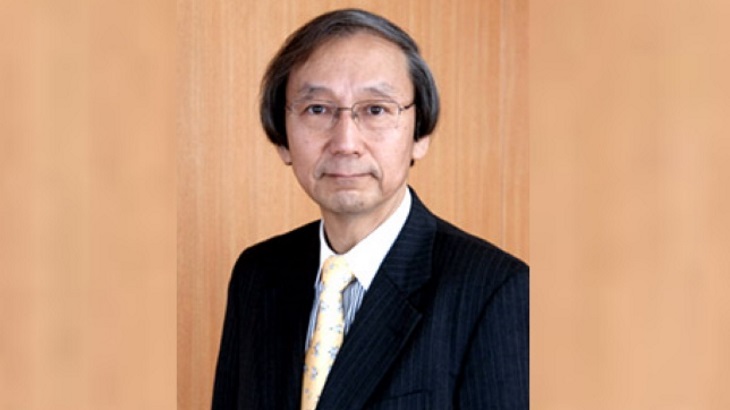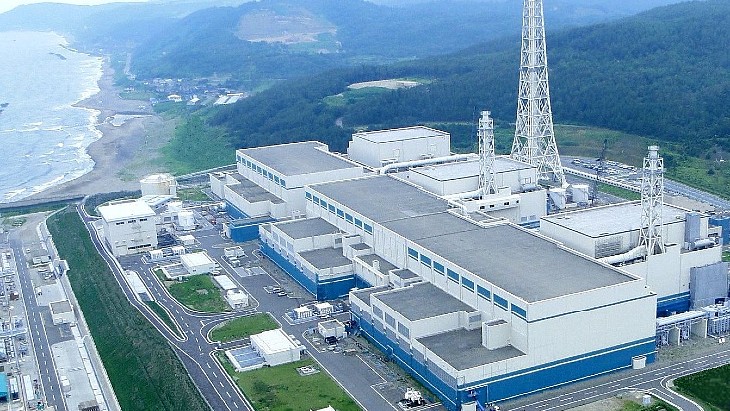"In January, Japan faced a power crisis for several reasons that need to be mentioned and explored. First, a much colder than normal winter pushed up electricity demand by about 10% compared to previous years. Second, the shorter duration of days and the reduced number of sunny periods that are both typical features of a colder winter meant the capacity factor of renewable energy units, such as those using solar power, decreased considerably. Third, as China increased its LNG consumption (primarily also to deal with the colder winter), the global supply of LNG to other countries could not easily be increased because the smooth passage through the Panama Canal was disturbed by restrictions imposed during the COVID-19 pandemic.
Consequently, wholesale electricity market prices skyrocketed to almost USD2.5/kWh, which is 40-50 times higher than usual. Such a spike caused consternation for consumers with contract-based prices linked to the wholesale market. It also created serious problems for new electricity suppliers from the burden of a drop in power generation capacity.
It is always troubling to hear about the introduction of ceiling prices or price controls at the wholesale level. The Japanese power market reform had been an attempt to revitalise the electricity industry and the full liberalisation of the retail market was almost completed in 2016. It is true that markets sometimes fail and revisions must be made where appropriate, but this winter’s power crisis was not necessarily a market mechanism failure. It was instead caused by an insufficient level of emergency preparedness and the slow achievement of an adequate power generation mix, including the slow restart of nuclear reactors.
In terms of emergency preparedness, the current minimum reserve ratio of as little as 3% is too low when you consider that 7% is desirable. Such a ratio should be supported by the capacity market and, as in the USA and some European countries, incentives should be provided for power savings and better maintenance practice, again by the capacity market.
After assessing nuclear power's contribution to energy security, the government determined that it favoured a share for nuclear in the power generation mix of 20-22% by 2030. As it typically takes five years from the purchase of nuclear fuel to the point at which it starts to be used at nuclear power plants, Japan has been stockpiling five-year's worth of fuel to ensure security of supply. Unfortunately, nuclear energy in Japan currently accounts for just 6% of total power generation, while its share before the Fukushima nuclear accident was as much as 30%.
Why is its share now so small? There are at least four reasons.
The first is that Japan closed all of its nuclear power plants following the Fukushima-Daiichi accident in 2011, and the plant operators are slowly going through the approval process to restarts their units with the Nuclear Regulatory Commission. To date, nine reactors have been permitted to restart, seven units are still under inspection and 11 are waiting to be inspected. If all of these 27 reactors are approved for restart, the target of a 20-22% share of the electricity mix from nuclear could be achieved.
The eight years that have passed since the new regulatory agency was established should have been enough time in which to pass over a learning curve in conducting inspections under the new regulatory requirements, but the process of granting permission for restarts needs to be accelerated.
The second reason is that about half of the nine reactors that were approved for restart were forced to stop again because of injunctions issued by local courts. In the USA and major European countries, the court intervenes only when a procedural deficiency is found. In Japan, some local courts have passed substantial judgement on safety matters, before having these overturned following requests for a re-examination of their decision. Three cases have already been overturned and one is still in dispute.
The third reason is that it takes longer to construct special anti-terrorism facilities than the five years within which a unit is required to be restarted after receiving approval to do so. Nuclear experts overseas have advised the regulatory commission that power companies should be permitted alternative measures to continue the operation of their nuclear units. Unfortunately, the commission has not taken this advice and has let reactors be shut down again. At present, three reactors are under such suspended operation.
The last reason is that power companies are reluctant to restart their nuclear units unless they receive consent from the given local government. This year, one of the four reactors permitted to restart might not be issued such consent.
Consequently, as of mid-February, only four of the nine reactors cleared for restart are in operation and they account for just 6% of the power generation mix.
These four reasons for the slow restart of Japan's reactor fleet reflect the fact that nuclear energy in Japan is still only halfway towards restoring public confidence in its safety. On the plus side, restarting an existing nuclear unit would be in line with the spirit of the 3Es - Energy Security, Economic Efficiency and Environment. The industry's five years of fuel stockpiling is clearly good for energy security and energy economics. Nuclear power is also undoubtedly good for the environment as the country's established zero-carbon form of energy.
With Prime Minister Suga's declared aim to achieve a carbon-neutral society by 2050, nuclear energy should be employed to help meet this challenge and to enjoy its enviable attributes as a reliable source of clean energy.
Restoring public confidence in nuclear safety is the biggest challenge that the nuclear industry is facing in Japan. There is no silver bullet for this. What is needed is a steady but accelerated effort to restore trust through honest dialogue with the public in general and with those who live near nuclear power plants in particular. We should rely more on the advice of international organisations, such as the IAEA, OECD/NEA and World Nuclear Association, and listen to nuclear experts and leaders from countries where the benefits of nuclear energy are recognised and appreciated.
Indeed, only when the 2030 target for Japan's power generation mix has been achieved will it be possible to avoid the type of energy crisis the country has experienced this winter."






_91467.jpg)
_47120.jpg)
_16439.jpg)



